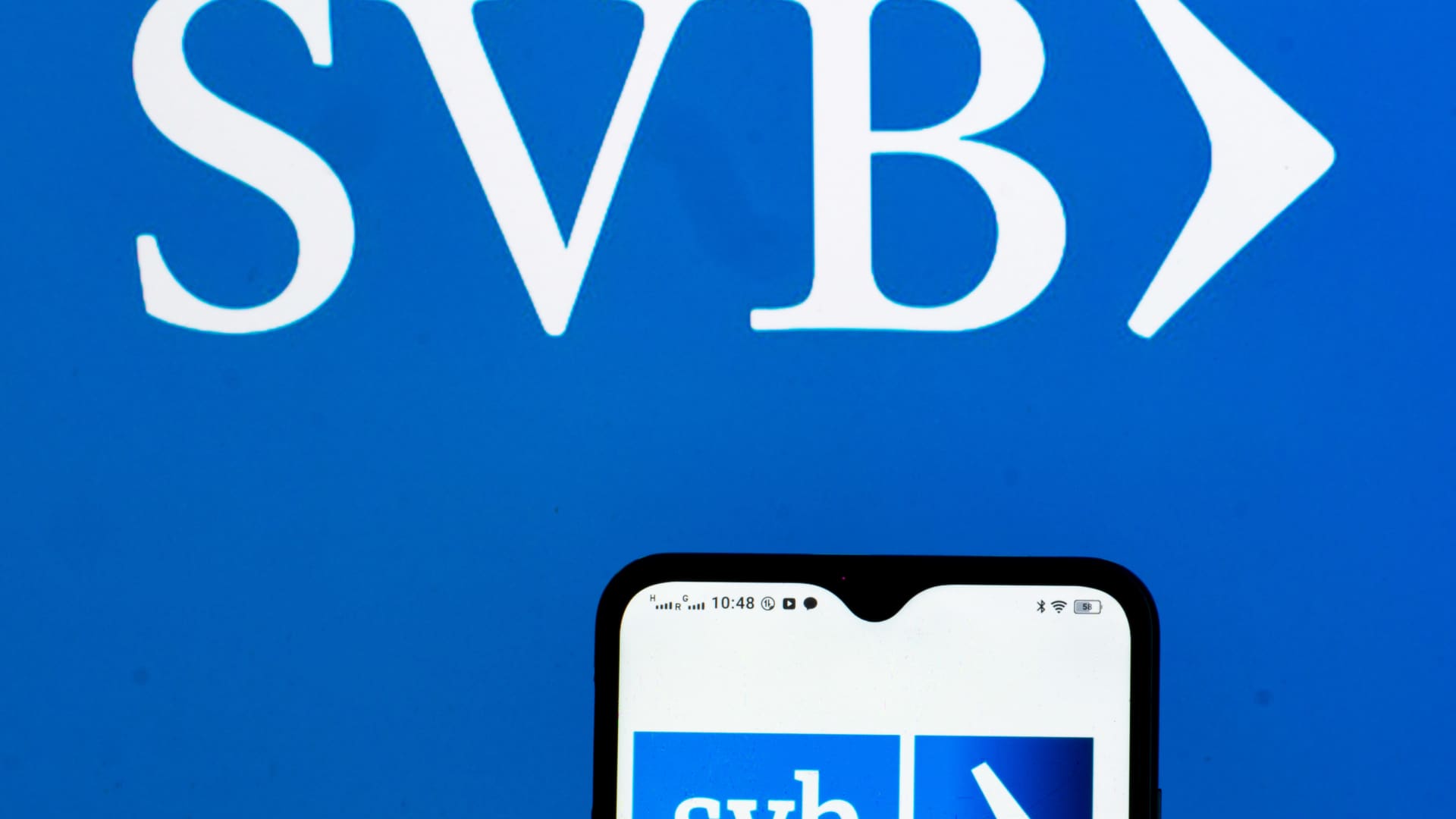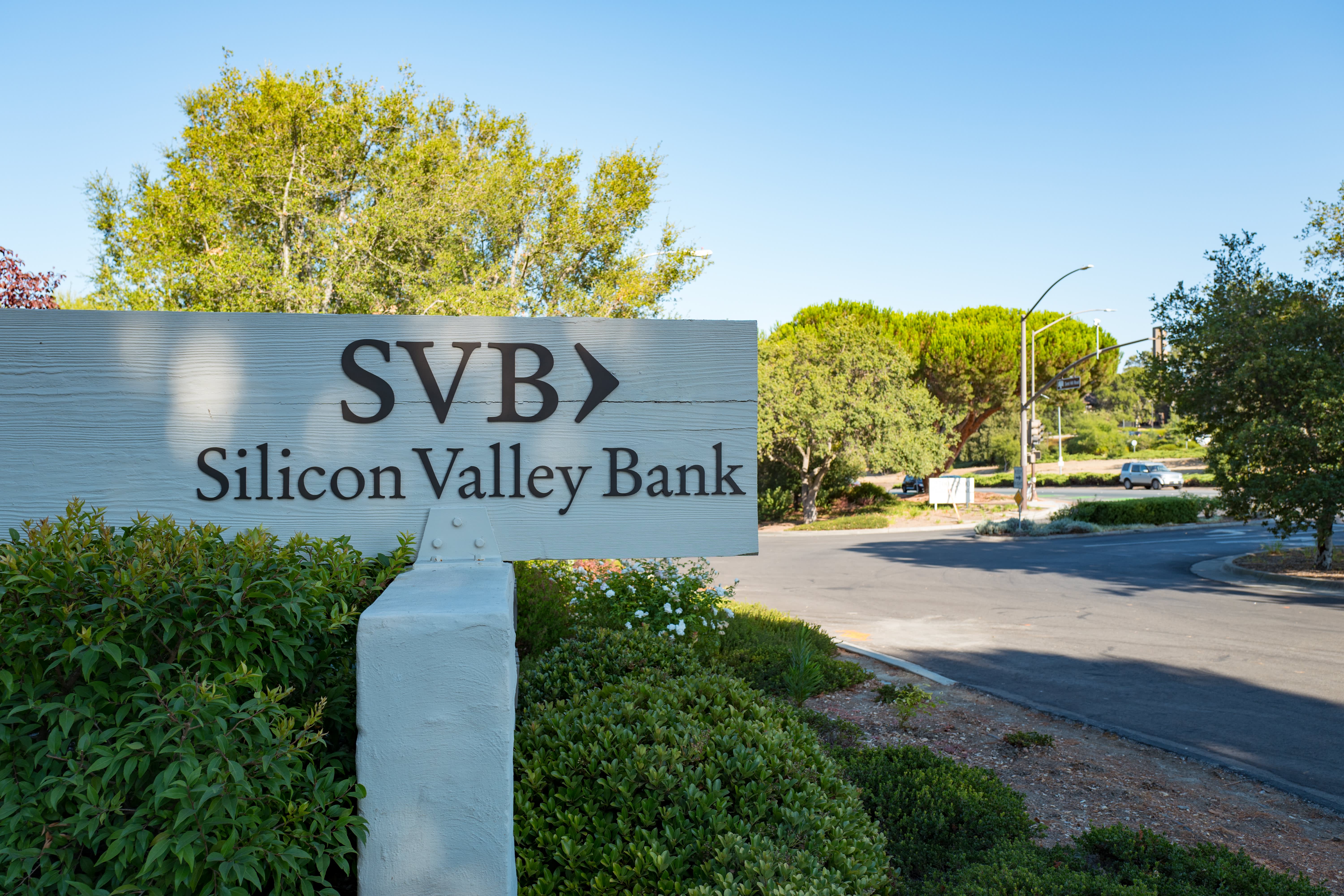Venture capital firms on both sides of the Atlantic have been urging their portfolio companies to move money out of embattled lender Silicon Valley Bank, deepening fears of a run on the tech-focused bank.
Silicon Valley Bank shares plunged 60% Thursday after disclosing that it needed to shore up its capital with a $2.25 billion equity raise from investors including General Atlantic. The company’s stock was down another 60% in premarket trading Friday.
related investing news
SVB is a major bank in the technology startup space, having developed relationships with the VC community over its four decade existence. Providing traditional banking services while also funding tech projects, it is considered a backbone of the venture capital industry in the U.S.
Numerous VC funds, including major players like Founders Fund, Union Square Ventures and Coatue Management, have advised companies in their portfolios to move their funds out of SVB to avoid the risk of being caught up in the potential failure of the bank. Having funds frozen at SVB could be deadly for a money-burning startup, according to founders with accounts at the bank who spoke to CNBC on the condition of anonymity.
Pear VC, an early-stage VC firm based in San Francisco, urged its portfolio network to withdraw funds from SVB on Thursday. Pear’s portfolio includes the open-source database Edge DB and payroll management platform Gusto. A spokesperson for Gusto said the company “does not use Silicon Valley Bank to fund customer payroll services and operations” and that therefore it clients are unaffected.
“In light of the situation with Silicon Valley Bank that we are sure all of you are watching unfold, we wanted to reach out and recommend that you move any cash deposits you may have with SVB to another banking platform,” said Anna Nitschke, Pear’s chief financial officer, in an email to founders obtained by CNBC.
“In this market, a larger money center bank (think Citi Bank, JP Morgan Chase, Bank of America) is best suited, but in the interest of time, you might be able to open interim accounts faster with smaller banking platforms such as PacWest, Mercury, or First Republic Bank.”
Pear was not immediately available to comment when contacted by CNBC.
SVB didn’t immediately respond when asked by CNBC whether it had enough assets on hand to process withdrawals from startups.
The wind-down of crypto-centric Silvergate Bank and pressure on Silicon Valley Bank this week reminded some founders of the 2008 financial crisis, in which banks toppled during the mortgage bust.
SVB is grappling with a difficult technology funding environment as the IPO market remains chilly and VCs remain cautious against the backdrop of a weaker macroeconomic situation and rising interest rates.
In the tech heydays of 2020 and 2021, ultra low interest rates meant that it was much easier for startups to raise capital.
As rates have risen, company valuations have seen something of a reset, and venture-backed firms are feeling the pinch as VC funding market experiences a slowdown. Even with funding rounds slowing, startups have had to keep burning through cash raised from earlier rounds to cover their overheads.
That’s bad news for SVB, as it means companies have had to drain deposits from the bank at a time when it is losing money on excess cash invested in U.S. debt securities, which have now fallen in price after the Fed’s rate hikes.
Hoxton Ventures, a London-based VC firm, is advising founders to withdraw two months’ worth of “burn,” or venture capital they would use to finance overhead, from SVB.
In a note to founders Thursday, Hussein Kanji, Hoxton’s founder partner, said: “We have seen some funds passing on a view that they remain confident in SVB. We are seeing other funds encouraging companies to withdraw their funds from SVB. It remains to be seen how this will all play out.
“If the self-fulfilling prophecy occurs, the risks to you are asymmetric.”
Speaking separately to CNBC, Kanji said: “The big danger for startups is that their accounts will be frozen while the mess is being sorted.”
Kanji believes SVB may either be bailed out by the U.S. Federal Reserve or acquired by another firm.
The company has hired advisors to explore a potential sale after attempts by the bank to raise capital failed, sources told CNBC’s David Faber Friday.





